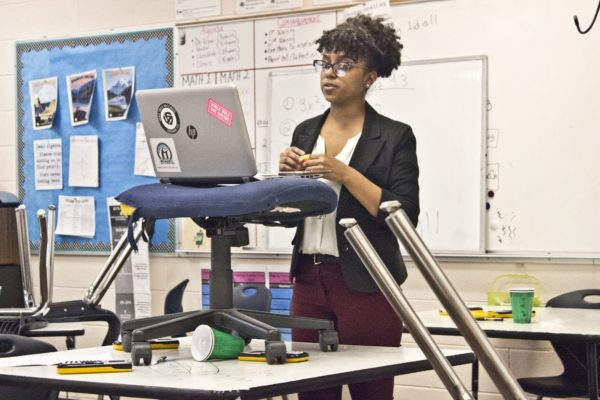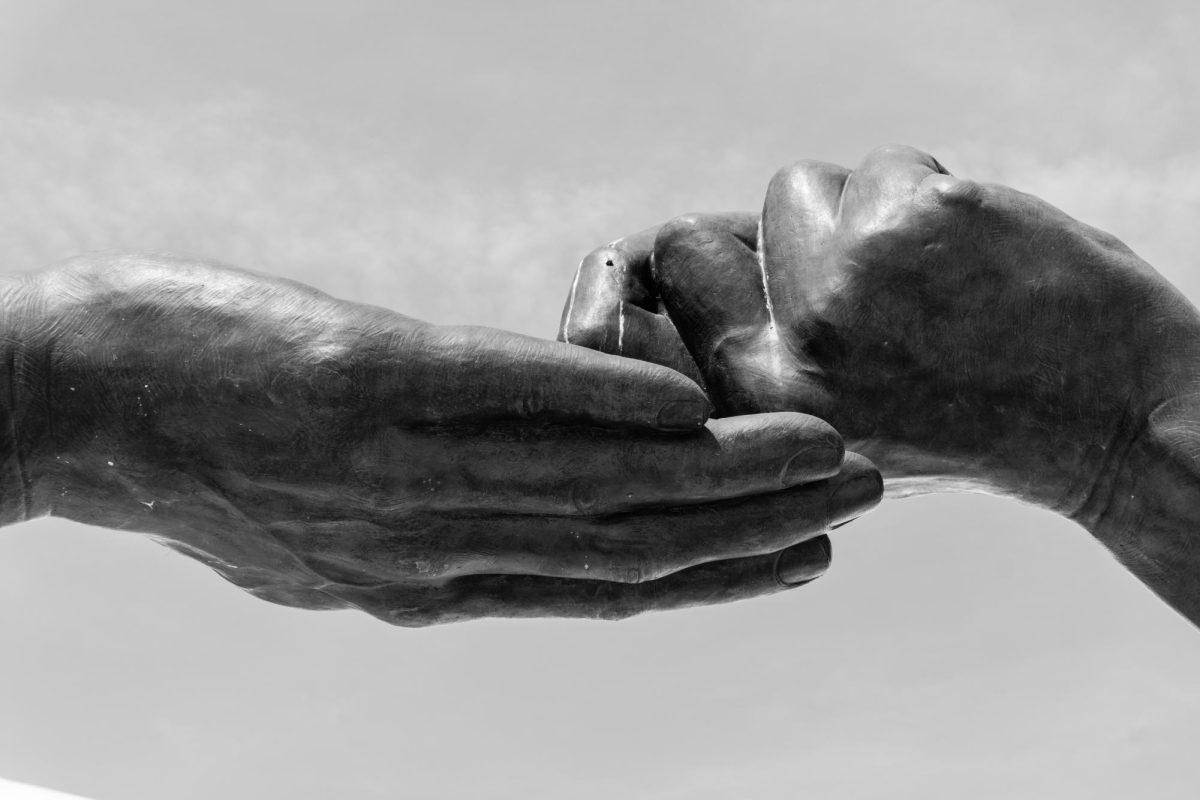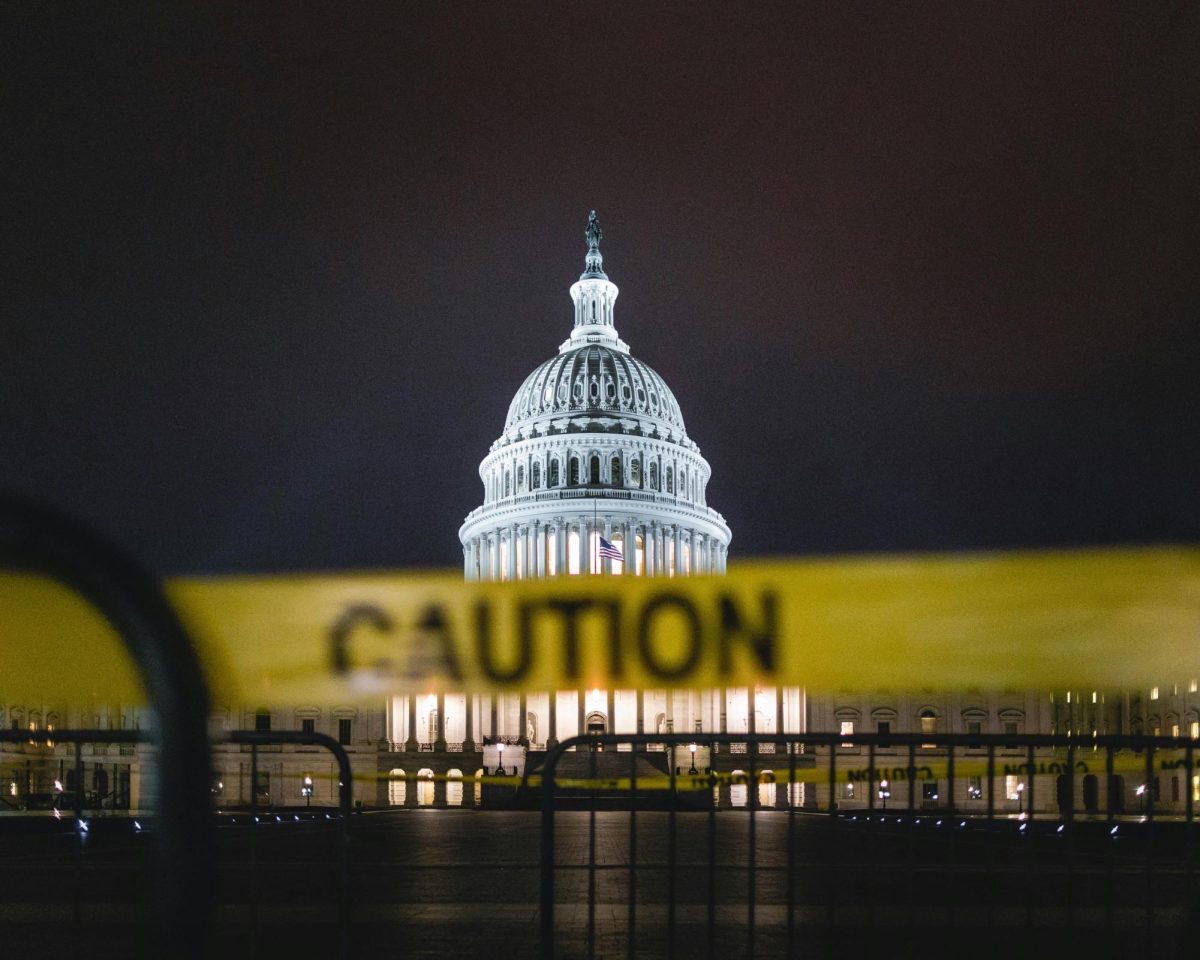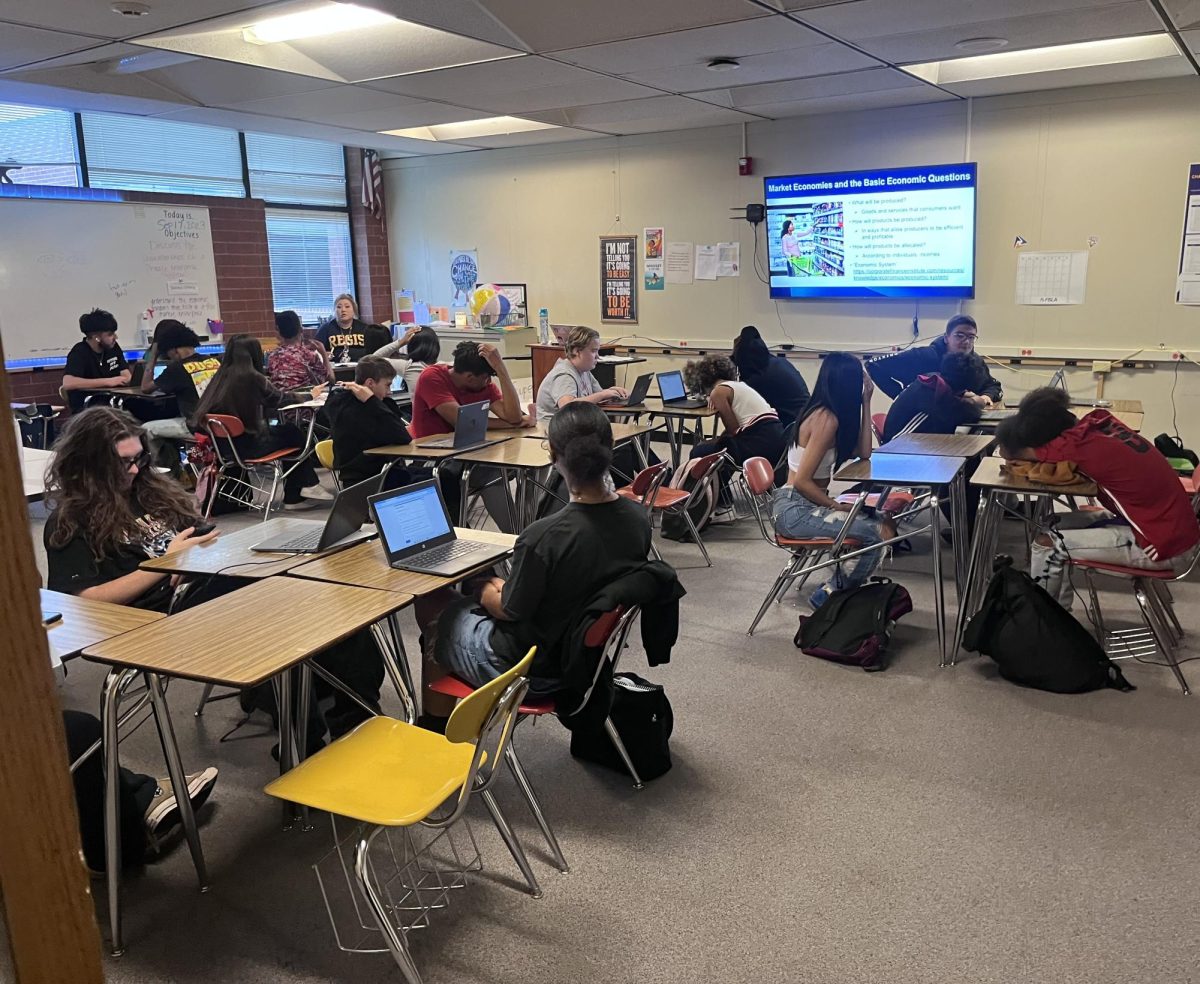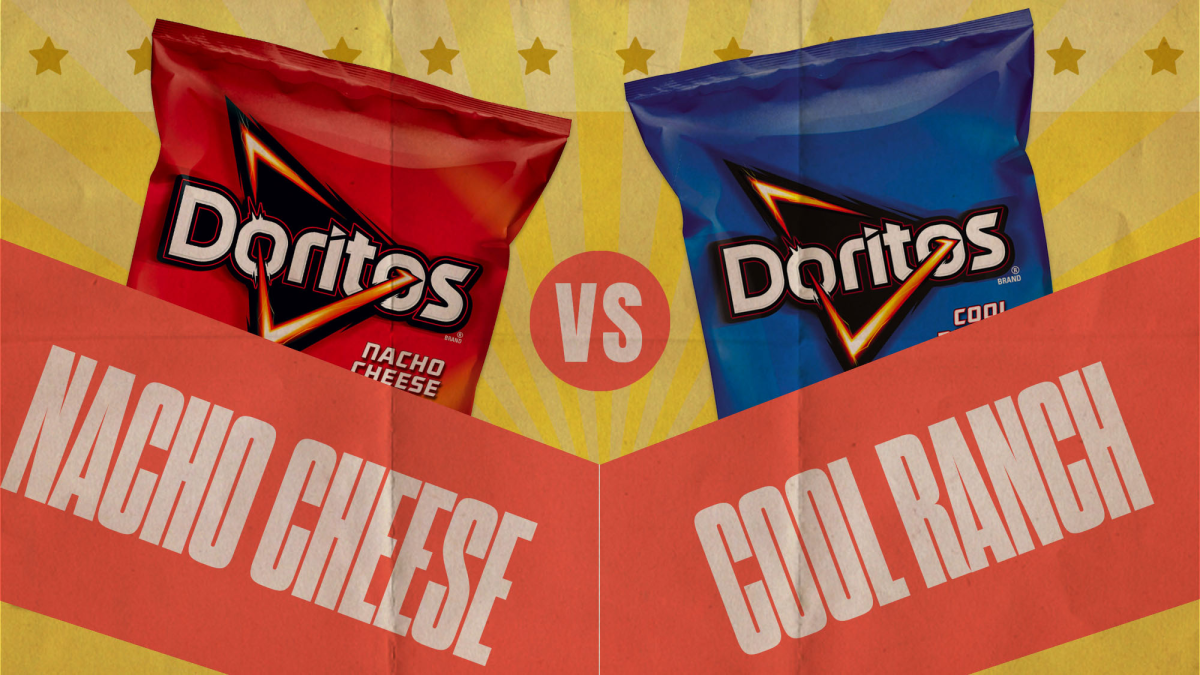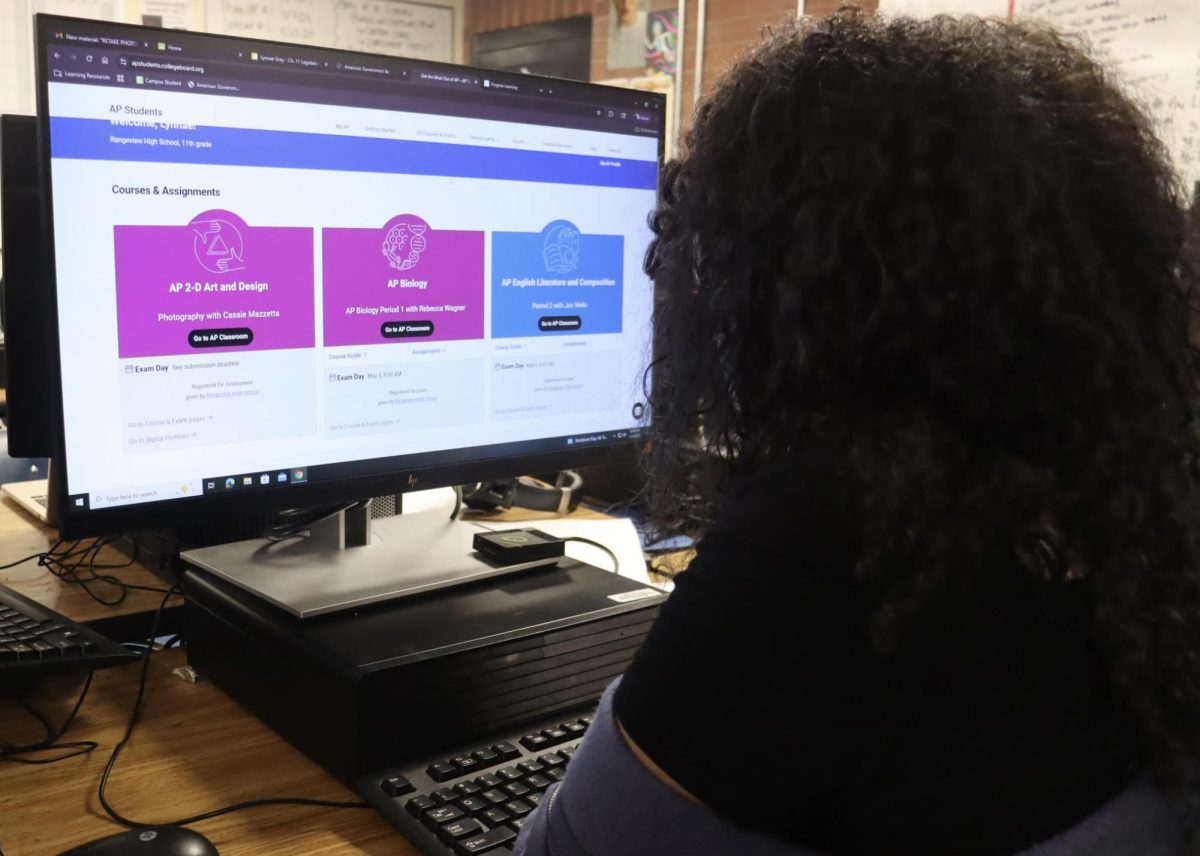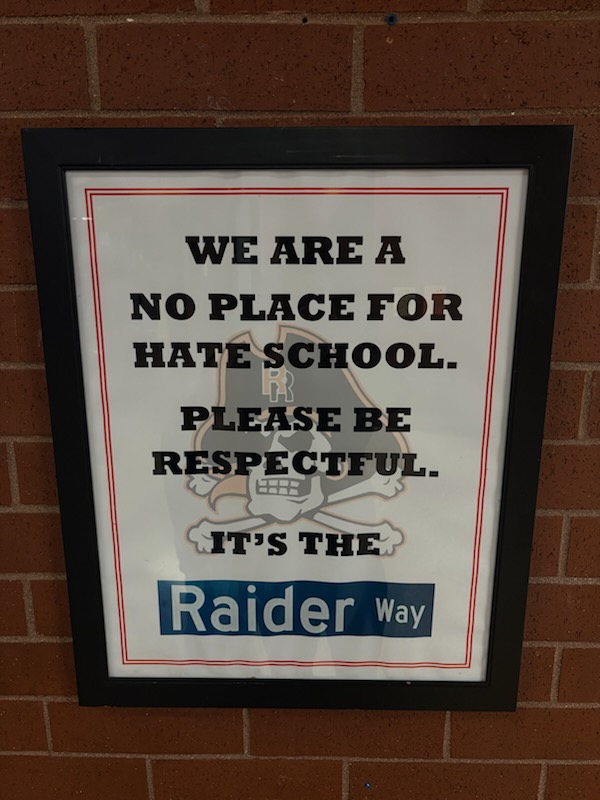Feature Photo By: Myriam Alcala – Junior Ariana Jones gives her speech in the middle of a debate round. The debate tournament was January 27th, Jones argued on Capitalism and its role in the school system and market.
Capitalism. When you first hear that word, what comes to mind? The economy? Market and trade? Money? Capitalism is defined as the economic and political system where a country’s trade and industry is controlled by private investors rather than the government.
When people think of capitalism, the school system doesn’t often come to mind. Why would it? Capitalism is economy based, right? It has actually produced the ideology of competition and owning things, the basis of the basic school system.
N.J. Barkauskas, researcher and scholar of policy and theory, said, “It’s not possible for all students to be successful when they’re competing for things…Not all schools can be good schools…”
Let me further explain:

Capitalism produces an unequal playing field in schools. It has (1) forced schools, especially ones of high poverty, to compete with each other for a better environments, technology, and money; (2) idolized objective concepts like class rank, GPA, and grades; (3) marketed the school with “parent choice” schools –these are schools that are heavily funded and ideal, making other schools looks inferior– and forces them to compete for students as though they are objects.
When asked about student competition, specifically class rank, teacher Anna Gebhardt said, “Healthy competition is important, competition where if you lose its crippling and depressing, that’s not okay.”
Capitalism is also solely centered around self interest; it provides the market with human capital, thus trapping students in the “system”. Students go through a school system where Neoliberal reformers focus on tests, traditional texts, and memorization drills. Director of Education, Henry Giroux, also touched on the fact that neo-liberals plan to disinvest the public school and have schools administered by market-driven forces.
“The dystopian mission of public and higher education is to produce robots, technocrats, and compliant workers,” said Giroux.
Junior Ariana Jones presents the closing arguments on Capitalism during the debate tournament (Myriam Alcala)
Now, why is this bad? As a society, Americans have grown accustomed to these epistemological beliefs that people are unequal. This inequality is seen through the difference between a rich and poor school, between an AP and a regular student, but most consequently, it is seen between different races and genders.
“Racism is rooted in the historical development of capitalism as a world system,” said the socialist organization IBT. “Today racism remains an ideological mainstay for the capitalist elites, providing a rationale for the barbaric oppression of minorities.”
For example, capitalism created the ideology of owning things, this extended into elites thinking they can own people — slavery. This ideology — or epistemology — has followed Americans throughout history and created the inequalities people face today.
This season’s Denver Urban Debate League topic is centered around the school system. Policy Debaters argue about neoliberalism and capitalism in some rounds; Mapleton student and Open Policy Debater, Jennifer Dam, said, “Capitalism is basically the root of all evil.”
I am not saying that other governing systems, like communism, should be implemented in the United States; these would not work because Americans already have an embedded capitalist mindset. Instead, students should advocate to have a “site of commons” view, or equal playing field, in the school system.
By implementing a new pedagogy for equality in a schooling system where students are not yet corrupted by the epistemology of capitalism, the upcoming generations have the possibility to grow up seeing everyone as equal, no matter their race, gender, or mental capability.
